Featured
We Starved For One Month -Chibok Girl …As B’Haram Gives Condition To Free 83 More
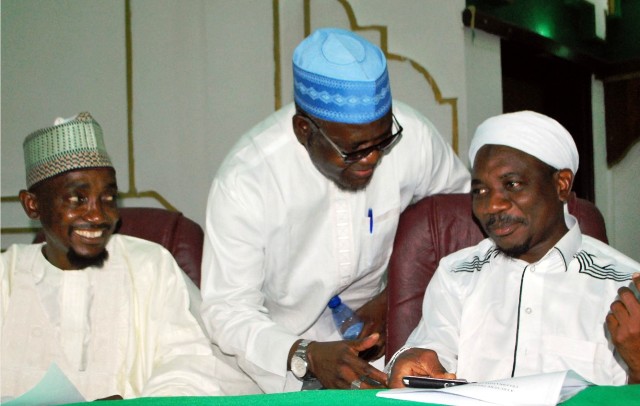
The venue of the special church’s thanksgiving service, yesterday, was filled with emotions, tears and joy when parents reunited with 21 Chibok schoolgirls rescued from Boko Haram’s captivity.
The church service was organised by the Federal Government to thank God for the lives of the schoolgirls who were released last Thursday.
Information and Culture Minister, Lai Mohammed, who represented the Federal Government at the church service held at the Presidential Villa, yesterday, said, “this is a day the entire world has been waiting for; it is a day of joy.
Mohammed added that negotiations are underway for the release of the other Chibok girls in captivity, but warned Nigerians against unguarded statements that could truncate the rescue efforts.
Speaking on behalf of her colleagues, Miss Gloria Dame, who was visibly happy as she jumped for joy, said, “we stayed for one month without food’’, adding, “I narrowly escaped bomb blast in the forest. I never knew there would be a day like this. I will give thanks to God’.
She begged Nigerians to pray for the quick release of the remaining girls in Boko Haram’s captivity.
Shiktra Kwali, in her sermon at the interdenominational service, urged the girls not to allow their harrowing experience to deter them from achieving their dreams.
The parents, who saw the girls for the first time in over 900 days since they were abducted from their Government Girls Secondary School, Chibok, were full of joy.
Speaking, the parents of the freed Chibok girls thanked God, President Muhammadu Buhari and Nigerians for their efforts, support and prayers, towards their daughters’ freedom, and called for the release of the remaining girls.
It would be recalled that families of the girls had left Chibok in Borno State on Friday and arrived in Abuja on Saturday night, but were reunited with the girls at the church, yesterday.
No fewer than 276 of the girls were abducted, and 57 escaped within a week of their abduction.
They were abducted by Boko Haram on 14th April, 2014.
Two buses conveyed the parents from Chibok.
The Chairman of Chibok Girls Parents Association, Yakubu Nkenke, had said that the girls had eventually been identified by their parents.
The Chairman of Chibok Local Government, Mr. Yaya Yarakawa, confirmed the identification of all the girls, and said those doubting their authenticity “must have sinister motive’’.
He expressed satisfaction with the role played by the government.
“I am travelling to Abuja with all the parents of the freed girls, all of us are here. We are overwhelmed with joy that our girls have been found alive. I cannot talk more because we are approaching security check- points,” he said.
The release of the girls was made possible through a negotiation brokered by the International Red Cross with the support of Swiss government.
President Muhammadu Buhari had also promised the negotiation would continue for the release of those still in captivity.
The Minister of Information and Culture, Alhaji Lai Mohammed, and Minister of Women Affairs, Hajiya Jummai Alhassan, among others, attended the service.
Meanwhile, as negotiations for the expected next phase of the release of 83 Chibok girls begins this week, indications have emerged that the leadership of the Boko Haram sect might table two major conditions to be met by the Federal Government to seal the deal.
A source close to the negotiations said, yesterday, that unlike the 21 girls, who were freed by the sect, last Thursday, to test government’s level of commitment and sincerity, the release of the remaining girls may be based strictly on ransom payment and freedom for no fewer than 16 of Boko Haram commanders by the government.
The government, it was learnt, was eager to get the remaining 83 girls, reportedly held by a top leader of the sect in an undisclosed location in the North East.
Of the 219 girls still missing, a source said that only 104 were left in the captivity of the sect while the rest had long been married off by top commanders and converted to Islam.
“The truth is that those Chibok girls are now Boko Haram members, having married the sect members and become radicalised,” the source said.
“The remaining 83 girls are with a top leader of Boko Haram and those are the only ones we are going to work for their release in the next phase of our negotiations which starts immediately.
“The others had since become Boko Haram members, having been married off and radicalised into Boko Haram as soon as they were captured over two years ago”.
It was learnt that the body language of representatives of the sect, who are meeting with a Federal Government team, indicate that they might insist on payment upfront of huge cash by government before freeing the captives.
“I think the guys are settled on the idea that the cash must come ahead of the release since they had proved to government that they are reliable by releasing the 21 girls, last week, without many conditions attached”, the source stated.
Asked if the sect leaders were unsure of government’s sincerity to keep its own side of the bargain, the source said that the representatives of Boko Haram had also shown that they have confidence in government.
It was learnt that the lingering challenge in getting back all the girls arose from the fact that while some of them are with a faction loyal to Benawhi, the rest are being kept by the group loyal to Abubakar Shekau.
But one of the negotiators believed the remaining 83 girls would be freed, if a meaningful deal is struck between the sect and the Federal Government.
However, the Office of the National Security Adviser (ONSA) has said that threats posed by terrorism and violent extremism in parts of Nigeria have not only stretched law enforcement agencies but have also exposed the gap in the nation’s capacity to deal with asymmetric warfare.
Coordinator of the National Counter-Terrorism Centre (CTC) in ONSA, Commodore Yem Musa, who stated this in at a one-day ‘Strategic Communication Analytical Technique Exercise’ in Abuja, said that violent extremist groups were more adapted to using strategic communication than government.
“Through this exercise, we will explore how strategic communication must be a first order capability in the armed forces, law enforcement and intelligence agencies as well as strategic MDAs of government”, Musa said.
Musa explained that the nature of asymmetric warfare and the liberalization of information access through the social media have made it imperative for any state actor serious about its national security to develop efficient and effective use of strategic communication.
He noted that the threat from terrorists, insurgent groups and other non-state actors in the country, has called for enhanced capacity and holistic measures to deal with the emerging security challenges.
Featured
Rivers A Strategic Hub for Nigeria’s Blue Economy -Ibas …Calls For Innovation-Driven Solutions
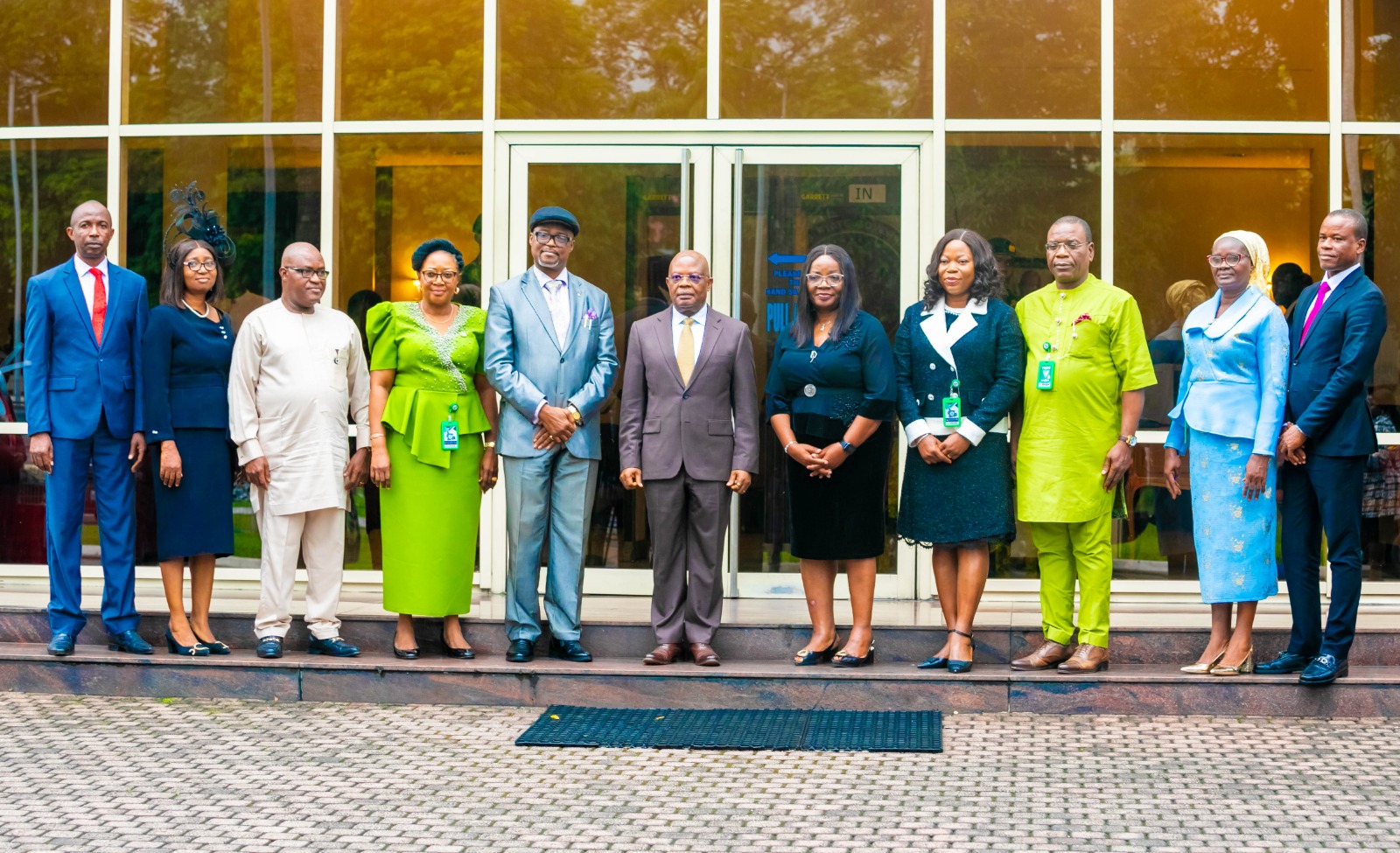
The Administrator of Rivers State, Vice Admiral (Rtd.) Ibok-Ete Ibas, has emphasized the need for innovation-driven strategies, strategic partnerships, and firm policy implementation to fully harness the vast potential of the blue economy.
Speaking during a courtesy visit by participants of Study Group 7 of the Executive Course 47 from the National Institute for Policy and Strategic Studies (NIPSS) at Government House, Port Harcourt, on Monday, Ibas highlighted the importance of diversifying Nigeria’s economy beyond oil by leveraging maritime resources to create jobs, enhance food security, strengthen climate resilience, and generate sustainable revenue.
The Administrator, according to a statement by his Senior Special Adviser on Media, Hector Igbikiowubo, noted that with coordinated efforts and innovative solutions, the blue economy could serve as a catalyst for inclusive growth, economic stability, and long-term environmental sustainability.
“It is estimated that a fully developed blue economy could generate over $296 million annually for Nigeria, spanning fisheries, shipping and logistics, marine tourism, offshore renewable energy, aquaculture, biotechnology, and coastal infrastructure,” he stated.
“We must transition from extractive practices to regenerative, inclusive, and innovation-driven solutions. This requires political cohesion, intergovernmental collaboration, robust infrastructure, and institutional capacity—all of which must be pursued with urgency and intentionality,” he added.
Ibas urged sub-national governments, particularly coastal states, to domesticate the national blue economy framework and develop tailored strategies that reflect their comparative advantages.
He stressed that such efforts must be guided by disciplined planning, regulation, and investment to maximize the sector’s potential.
Highlighting Rivers State’s pivotal role, the Administrator outlined its strategic advantages as follows:
•Nearly 30% of Nigeria’s total coastline (approximately 853km)
•Over 40% of Nigeria’s crude oil and gas output
•More than 33% of the country’s GDP and foreign exchange earnings
•416 of Nigeria’s 1,201 oil wells, many located in marine environments
•Two of Nigeria’s largest seaports, two oil refineries, and the Nigerian Liquefied Natural Gas (NLNG) terminal in Bonny Island—one of Africa’s most advanced gas facilities
Despite these opportunities, Ibas acknowledged challenges such as pollution, coastal erosion, illegal oil refining, unregulated fishing, inadequate infrastructure, and maritime insecurity.
He reaffirmed his administration’s commitment to institutional reforms, coastal zone management, and inter-agency collaboration to build a governance structure that supports a sustainable blue economy.
“Sustainability must be embedded in our development models from the outset, not as an afterthought. We are actively exploring partnerships in maritime education, aquaculture development, port modernization, and renewable ocean energy. We welcome knowledge-sharing engagements like this to refine our strategies and enhance implementation,” he said.
He urged the NIPSS delegation to ensure their findings translate into actionable recommendations that address the sector’s challenges.
Leader of the delegation, Vice Admiral A.A. Mustapha, explained that the visit aligns with their strategic institutional tour mandate on the 2025 theme: “Blue Economy and Sustainable Development in Nigeria: Issues, Challenges, and Opportunities.”
The group is engaging stakeholders to deepen understanding of policy efforts and institutional roles in advancing sustainable development through the blue economy.
Featured
INEC To Unveil New Party Registration Portal As Applications Hit 129

The Independent National Electoral Commission (INEC) has announced that it has now received a total of 129 applications from associations seeking registration as political parties.
The update was provided during the commission’s regular weekly meeting held in Abuja, yesterday.
According to a statement signed by the National Commissioner and Chairman of the Information and Voter Education Committee, Sam Olumekun, seven new applications were submitted within the past week, adding to the previous number.
“At its regular weekly meeting held today, Thursday 10th July 2025, the commission received a further update on additional requests from associations seeking registration as political parties.
“Since last week, seven more applications have been received, bringing the total number so far to 129. All the requests are being processed,” the commission stated.
The commission revealed the introduction of a new digital platform for political party registration. The platform is part of the Party Financial Reporting and Auditing System and aims to streamline the registration process.
Olumekun disclosed that final testing of the portal would be completed within the next week.
“INEC also plans to release comprehensive guidelines to help associations file their applications using the new system.
“Unlike the manual method used in previous registration, the Commission is introducing a political party registration portal, which is a module in our Party Financial Reporting and Auditing System.
“This will make the process faster and seamless. In the next week, the commission will conclude the final testing of the portal before deployment.
“Thereafter, the next step for associations that meet the requirements to proceed to the application stage will be announced. The commission will also issue guidelines to facilitate the filing of applications using the PFRAS,” the statement added.
In the meantime, the list of new associations that have submitted applications has been made available to the public on INEC’s website and other official platforms.
Featured
Tinubu Signs Four Tax Reform Bills Into Law …Says Nigeria Open For Business

President Bola Tinubu yesterday signed into law four tax reform bills aimed at transforming Nigeria’s fiscal and revenue framework.
The four bills include: the Nigeria Tax Bill, the Nigeria Tax Administration Bill, the Nigeria Revenue Service (Establishment) Bill, and the Joint Revenue Board (Establishment) Bill.
They were passed by the National Assembly after months of consultations with various interest groups and stakeholders.
The ceremony took place at the Presidential Villa, yesterday.
The ceremony was witnessed by the leadership of the National Assembly and some legislators, governors, ministers, and aides of the President.
The presidency had earlier stated that the laws would transform tax administration in the country, increase revenue generation, improve the business environment, and give a boost to domestic and foreign investments.
“When the new tax laws become operational, they are expected to significantly transform tax administration in the country, leading to increased revenue generation, improved business environment, and a boost in domestic and foreign investments,” Special Adviser to the President on Media, Bayo Onanuga said on Wednesday.
Before the signing of the four bills, President Tinubu had earlier yesterday, said the tax reform bills will reset Nigeria’s economic trajectory and simplify its complex fiscal landscape.
Announcing the development via his official X handle, yesterday, the President declared, “In a few hours, I will sign four landmark tax reform bills into law, ushering in a bold new era of economic governance in our country.”
Tinubu made a call to investors and citizens alike, saying, “Let the world know that Nigeria is open for business, and this time, everyone has a fair shot.”
He described the bills as not just technical adjustments but a direct intervention to ease burdens on struggling Nigerians.
“These reforms go beyond streamlining tax codes. They deliver the first major, pro-people tax cuts in a generation, targeted relief for low-income earners, small businesses, and families working hard to make ends meet,” Tinubu wrote.
According to the President, “They will unify our fragmented tax system, eliminate wasteful duplications, cut red tape, restore investor confidence, and entrench transparency and coordination at every level.”
He added that the long-standing burden of Nigeria’s tax structure had unfairly weighed down the vulnerable while enabling inefficiency.
The tax reforms, first introduced in October 2024, were part of Tinubu’s post-subsidy-removal recovery plan, aimed at expanding revenue without stifling productivity.
However, the bills faced turbulence at the National Assembly and amongst some state governors who rejected its passing in 2024.
At the NASS, the bills sparked heated debate, particularly around the revenue-sharing structure, which governors from the North opposed.
They warned that a shift toward derivation-based allocations, especially with VAT, could tilt fiscal balance in favour of southern states with stronger consumption bases.
After prolonged dialogue, the VAT rate remained at 7.5 per cent, and a new exemption was introduced to shield minimum wage earners from personal income tax.
By May 2025, the National Assembly passed the harmonised versions with broad support, driven in part by pressure from economic stakeholders and international observers who welcomed the clarity and efficiency the reforms promised.
In his tweet, Tinubu stressed that this is just the beginning of Nigeria’s tax evolution.
“We are laying the foundation for a tax regime that is fair, transparent, and fit for a modern, ambitious Nigeria.
“A tax regime that rewards enterprise, protects the vulnerable, and mobilises revenue without punishing productivity,” he stated.
He further acknowledged the contributions of the Presidential Fiscal Policy and Tax Reform Committee, the National Assembly, and Nigeria’s subnational governments.
The President added, “We are not just signing tax bills but rewriting the social contract.
“We are not there yet, but we are firmly on the road.”
-

 Politics1 day ago
Politics1 day agoINEC Trains Political Parties Officials On ICNP Use Ahead By-Elections
-
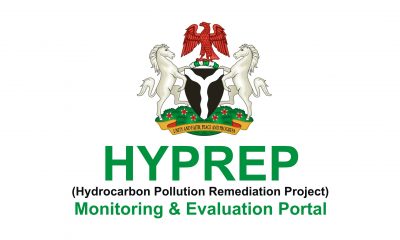
 Business1 day ago
Business1 day agoReplace Nipa Palms With Mangroove In Ogoni, Group Urges FG, HYPREP
-
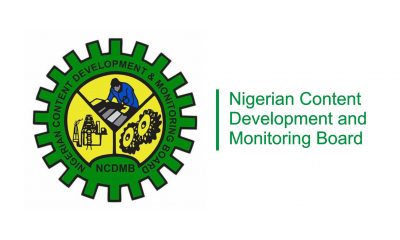
 Business1 day ago
Business1 day agoNCDMB, Dangote Refinery Unveil JTC On Deepening Local Content
-
Niger Delta1 day ago
C’River Hands Over Rubber Plantation to Private Company
-
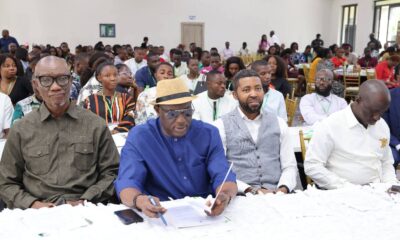
 Nation1 day ago
Nation1 day agoHYPREP Reaffirms Support For Ogoni Youths …Organises Workshop For Undergraduates
-

 Business1 day ago
Business1 day agoIndustry Leaders Defend Local Content, … Rally Behind NCDMB
-
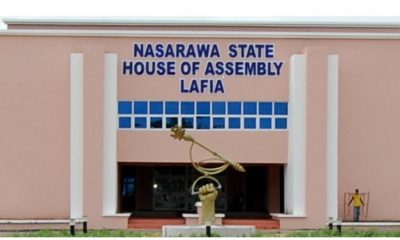
 Politics1 day ago
Politics1 day agoNasarawa Speaker Advocates Conducive Executive/Legislature Relations
-
Niger Delta1 day ago
Delta Leverages On Extensive River Networks To Drive Blue Economy

